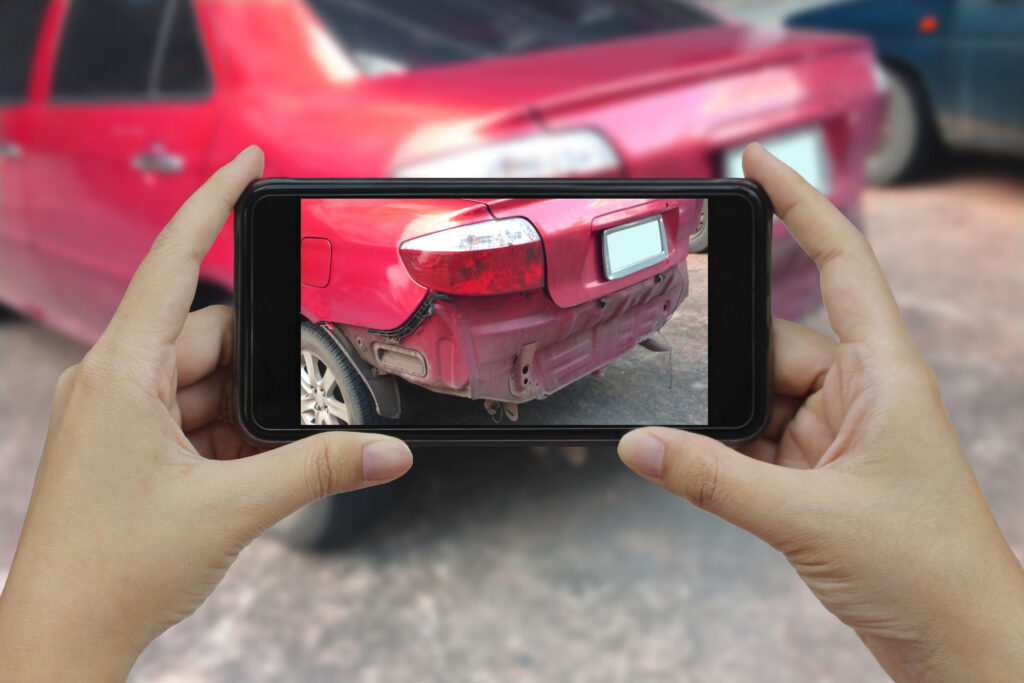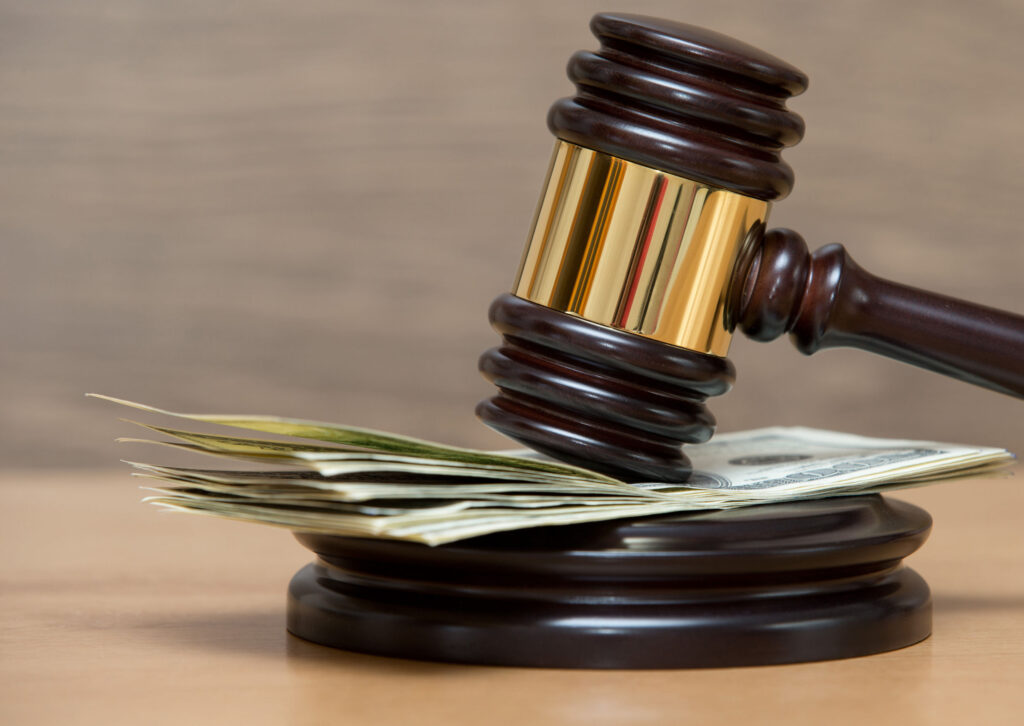Rear-end collisions can be terrifying. It’s especially scary when you’re the one who was rear-ended. So often in these types of car accidents, the person who is hit has no way to avoid it.

Your car may be significantly damaged or even totaled. You may be suffering from injuries like whiplash, persistent back pain, PTSD, or a concussion. High-speed rear-end accidents may even result in catastrophic injuries.
Whether your accident was minor or serious, you may be wondering if you should get a lawyer after being rear-ended. The answer depends on several key factors, including the severity of the wreck, who was at fault, and how complicated the case is. Find out more information about hiring an attorney after an accident, plus tips on getting the maximum rear-end collision settlement, from Lerner and Rowe Injury Attorneys.
Do You Live In An At-Fault State?
Before you do anything else, it’s important to understand how your state handles car accidents. Most states operate under an at-fault system, in which the insurance carrier of the driver who is responsible for causing an accident is responsible for the cost of property damage and injuries sustained in an accident. At-fault states include Arizona, New Mexico, Nevada, Washington, Illinois, Indiana, and Tennessee, among others.
At-fault states are not necessarily all or nothing; comparative negligence laws can lead to an outcome in which one driver is found to be 40% at fault and the other driver is 60% at fault, for example.
There are 12 states, however, that operate under no-fault regulations. This means that each individual involved in an accident in that state files a claim with their own insurance company, regardless of who caused the accident. These states include:
- Florida
- Hawaii
- Kansas
- Kentucky
- Massachusetts
- Michigan
- Minnesota
- New Jersey
- New York
- North Dakota
- Pennsylvania
- Utah
If your injuries and property damage to your vehicle exceed the threshold limits covered by your own insurance, you may still be able to file a personal injury lawsuit with the help of an experienced accident attorney.
Who Is At Fault In a Rear-End Collision?
If you live in an at-fault state, determining who was responsible for the accident is crucial. In the majority of cases, the driver who rear-ended you will be deemed at fault for the accident. This is because cars are required by law to keep a safe following distance from the cars in front of them. Even if you had to slam on your brakes, the driver behind you should be driving far enough behind you to make a safe stop.
That being said, there are some mitigating circumstances which might shift all or at least some of the blame onto the driver who was rear-ended:
- If the lead driver’s brake lights were out at the time of the crash
- If the lead driver was driving aggressively, recklessly, or erratically prior to the crash
- If the lead driver did something unexpected, such as putting their car in reverse
How Do You File A Rear-End Collision Insurance Claim?
Regardless of whether or not you choose to seek out the help of a car accident lawyer, you will need to file a claim with the at-fault driver’s insurance.
(If you live in a no-fault state or have optional Personal Injury Protection (PIP) coverage, you’ll want to file a claim with your own insurance company.)
Reporting the Accident
No matter the circumstances, you should always report an accident to your own insurance company so they have a record of it. In order to file a claim with the at-fault driver’s insurance company, you’ll need to gather as much evidence as possible at the scene of the accident.
Providing Evidence to Support Your Claim

Be sure to provide the insurance company with the driver’s name and license plate number, plus the date, time, and location of the accident, and any photos you have of the accident scene. If you were immediately transported to the hospital after the accident, this may not always be possible. Either way, you’ll also want to contact the local police department for a copy of the accident report.
In addition, you’ll want to provide ample proof of the damage to your car and the cost of your injuries. This means collecting and submitting medical bills, documenting the time you missed from work because of the accident, etc. An insurance claims adjuster will likely perform an inspection of your vehicle after the accident to determine how much it would cost to fix the damage or replace the vehicle altogether.
How Much Will A Rear-End Collision Settlement Be?
There are too many factors to give a truly accurate estimate of what you can expect in terms of a rear-end collision settlement. Depending on the extent of the damage to your car and how badly you and any passengers were injured, your initial settlement from the at-fault driver’s insurance company could range anywhere from a few hundred dollars to the full threshold limits of the insurance policy. Other factors, like having a pre-existing condition or needing ongoing medical care, can also impact your settlement.
How Car Insurance Minimums Affect Your Settlement
The minimum amount of car insurance coverage varies from state to state, meaning the coverage for property damage to your vehicle could max out at far below the value of your car. For example, the minimum amount of property damage coverage in states such as Arizona and New Mexico is just $10,000.
Although bodily injury thresholds are generally no lower than $25,000 per person, many states including Illinois and Tennessee have limits of just $50,000 of bodily injury coverage per accident. That means if there were four people in your vehicle when you were rear-ended, and everyone sustained moderate to severe injuries, each person could end up with far less than $25,000 in coverage to help them afford their medical bills and other associated expenses.
Car Insurance Companies Aren’t Looking Out For You
On top of everything else, car insurance companies are notorious for making low-ball settlement offers to car accident victims—far below the actual cost of that person’s medical bills, car repair or replacement costs, and lost wages, not to mention their pain and suffering.
When you’re dealing with a car insurance company on your own, you’re very likely to receive an insufficient rear-end collision settlement offer. One report by the Insurance Research Council even found that on average, injured accident victims received a settlement offer of at least three times what those without attorneys were offered.
How Can You Be Sure Whether You Need an Accident Lawyer?

The best way to determine how much a car accident attorney can actually help you is to arrange a consultation with an experienced personal injury law firm. At Lerner and Rowe Injury Attorneys, we offer all prospective clients with a free case review to help accident victims understand all their legal options and make an informed decision.
The truth is, even a seemingly straightforward rear-end collision case can be complicated, and trying to fight insurance companies on your own while recovering from an accident can feel near-impossible. With a qualified attorney on your side, the personal injury claim process is much less overwhelming.
A lawyer can also streamline the amount of time it takes to reach a rear-end collision settlement and maximize the amount of compensation available to you and your family. In addition, you don’t pay us a penny unless we make a recovery on your behalf.
With law offices and attorneys located throughout the United States, legal assistance through Lerner and Rowe Injury Attorneys is just one call away. Contact us at 844-977-1900 to schedule your free, no obligation consultation. Representatives are standing by via LiveChat to answer your questions. You can also submit your case details using this convenient form.



